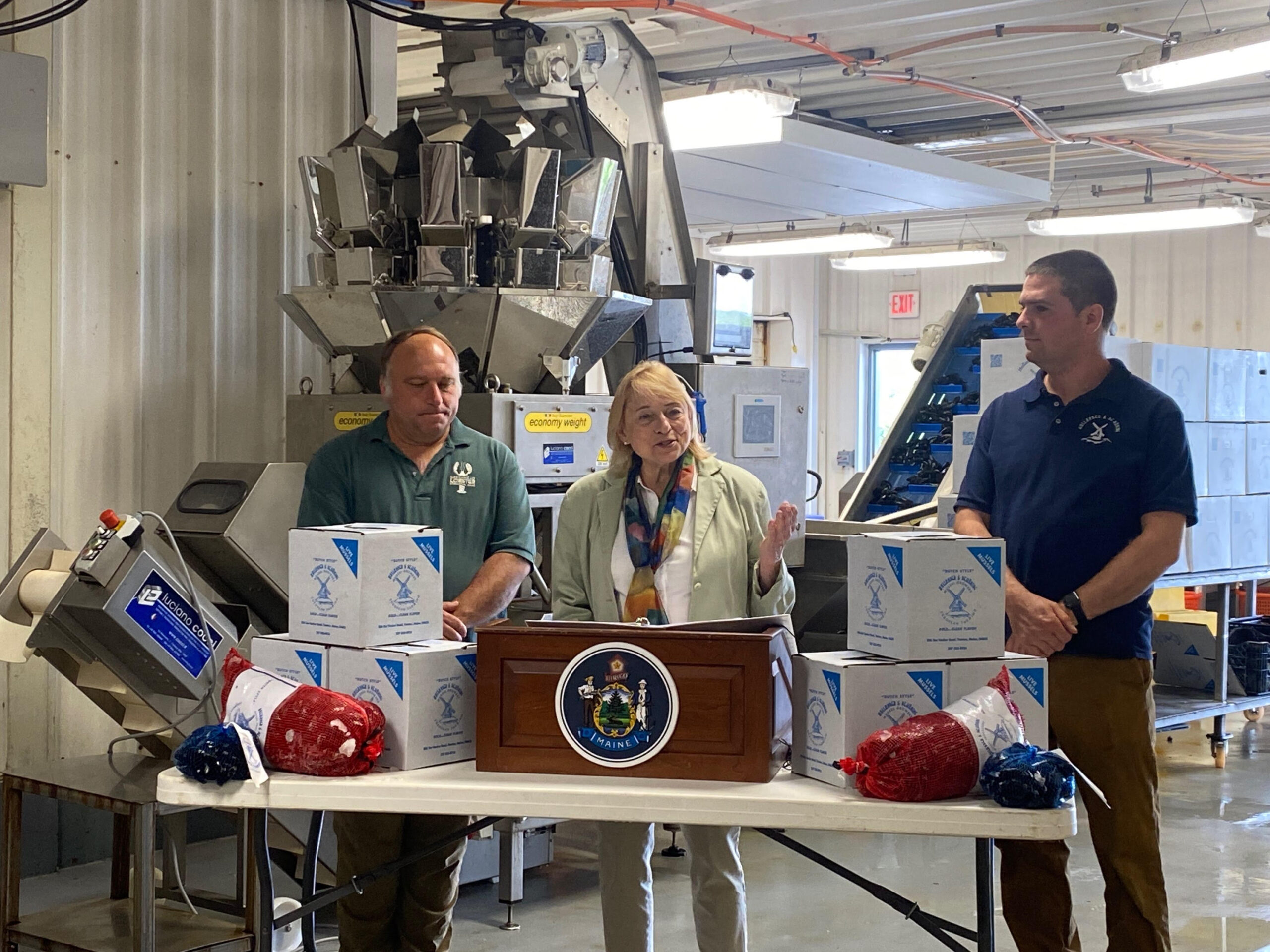On Wednesday, Governor Mills announced more than $15 million in grants for Maine’s seafood processing and dealing industry. Mills made the announcement at Hollander & Koning, a grant recipient and sixth generation, family owned and operated shellfish company in Trenton.
The funds will be distributed among 107 Maine seafood dealers and processors to help increase the supply of Maine-harvested seafood, strengthen their ability to deliver to markets, and create and sustain jobs throughout Maine’s seafood industry. Businesses in every coastal county received awards, with more than half the awards coming in at more than $115,000.
The funds for the grants were made available through the Seafood Dealer and Processor COVID-19 Response and Resilience Program (SDPP) that was established by the Governor’s Maine Jobs and Recovery Plan. The program draws $10 million from the Governor’s Jobs Plan, $5 million from the federal Consolidated Appropriations Act, and $850,000 from the USDA Seafood Processors Pandemic Response and Safety Block Grant Program. The Maine Technology Institute administered the program on behalf of the Maine Department of Marine Resources.
“Maine’s seafood industry – from our fisherman and aquaculturalists to our processors and our dealers – is a cornerstone of our economy, employing thousands of people up and down the coast and generating about two billion dollars every year,” said Governor Mills. “They work hard every day, and they have adapted with characteristic Maine grit and ingenuity to meet the challenges of the pandemic, but it hasn’t been easy by any means. Helping our dealers and processors upgrade their infrastructure will ensure the strength and vitality of this industry for years to come, keep Maine people working in our waters and waterfronts, and keep delivering Maine’s world-class seafood across the globe.
Patrick Keliher, Commissioner of the Maine Department of Marine Resources, said “Maine seafood dealers and processors have faced unprecedented levels of uncertainty over the past two and a half years. The need to modify product lines and business practices to accommodate a changing supply chain and labor challenges has put many of these Maine businesses in a difficult financial position. This program will help them overcome the adversity they’ve endured and build a strong foundation for a prosperous future.”
The grants are part of the Governor’s continued efforts to strengthen the post-pandemic rebound of Maine’s heritage industries like fisheries, agriculture, and forestry.






